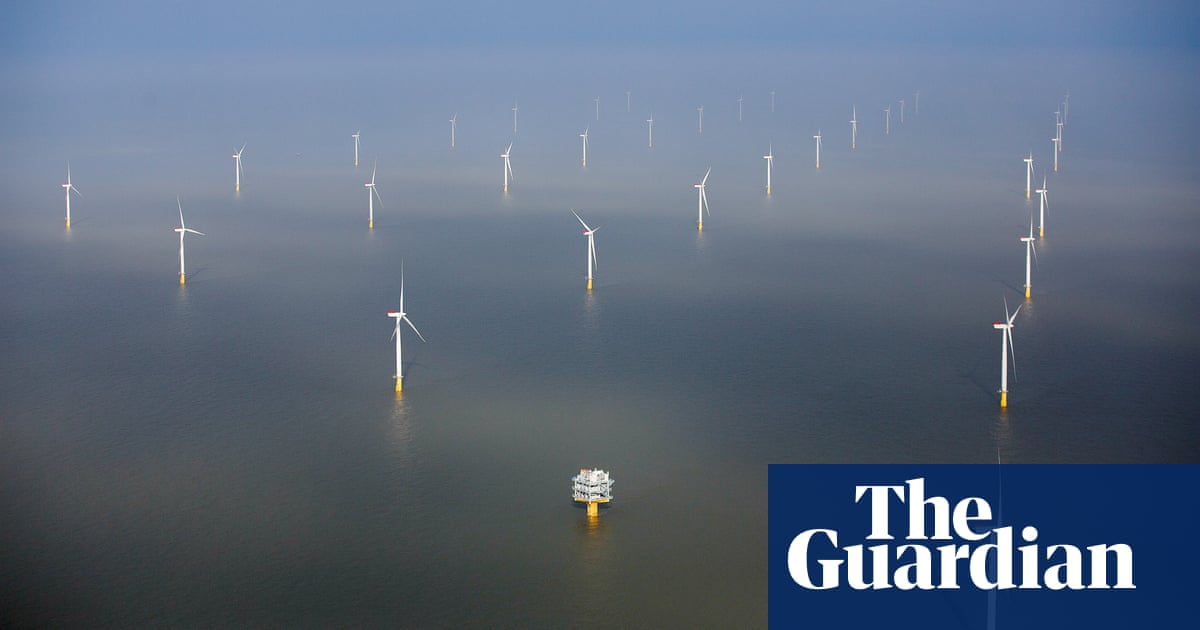
Fossil fuel companies will be allowed to explore for oil and gas under offshore wind-power sites for the first time, the government will announce on Friday, in a move which campaigners say is further proof that ministers are abandoning the climate agenda.
The North Sea Transition Authority (NSTA), which regulates North Sea oil and gas production, will confirm that it is granting licences to about 30 companies to look for hydrocarbons on sites earmarked for future offshore windfarms.
The move has brought renewed criticism of Rishi Sunak from environmentalists, including from the prime minister’s own former net zero tsar, who worry that any future oil and gas production could hamper clean energy generation.
But it will also give the embattled prime minister a welcome piece of news to sell to his restive backbenchers – many of whom are keen to see more oil and gas production in the North Sea – the day after what are set to be a bruising set of local election results.
Chris Skidmore, the former Conservative MP who recently quit as Sunak’s net zero champion in protest at the government’s climate policies, said: “With a general election just months away, this is a deeply irresponsible and divisive move that goes against all advice from the International Energy Agency or the UN, and regrettably will further set back the UK’s climate reputation.
“Instead of wind powering new oil, the investment should instead be in more wind and renewables. More fossil fuels will only create stranded assets and stranded jobs at a time when demand for oil and gas is falling.”
He added: “This is a political and cynical stunt that will only backfire … We need to stop playing politics with climate and people’s future, and take a grownup position on seeking to find consensus for an end date to new oil and gas.”
A spokesperson for the NSTA said: “The NSTA have worked closely with other regulators to consider matters of co-location with offshore wind and other users.”
Sources say that the oil exploration itself will not involve any drilling, with companies largely using data to decide whether sites have the potential to be profitable for extraction.
Supporters of the scheme add that if any of the sites under windfarms prove suitable for production, oil and gas platforms will be able to use power from the wind turbines to lower their emissions. They will also have to strike an agreement with windfarm operators before they can begin drilling.
Experts say, however, that the emissions from burning any oil and gas produced will far outweigh whatever is saved in the drilling and extraction processes. They add that Friday’s announcement is likely to undermine investor confidence in Britain’s green energy sector as a whole.
The Guardian understands that investors in offshore wind have already expressed concern to the government about the decision, even threatening to pull out of the UK clean power sector altogether.
Doug Parr, policy director at Greenpeace UK, said: “It’s hard to think of a worse use of clean electricity from windfarms than powering the dirty industry that’s driving the climate crisis. It’s like using a nicotine patch to roll a cigarette.”
Sunak has made a series of announcements since becoming prime minister to roll back the government’s climate policies, including delaying the end of new sales of petrol and diesel cars and giving the green light for the huge new Rosebank oilfield off the coast of Shetland.
The prime minister has said the policies are part of a push to bring energy costs down and improve energy security. But his critics believe Sunak is using them as a dividing issue between the Conservatives and Labour going into this year’s general election.
after newsletter promotion
Last month, Chris Stark, the outgoing head of the Climate Change Committee, accused the prime minister of abandoning Britain’s reputation as a world leader in the fight against the climate crisis.
Sunak, however, is also under pressure from Tory rebels, with the party more than 20 points behind in the polls and heading for heavy losses after Thursday’s local elections. A group of unhappy backbenchers is planning a move to unseat him altogether if the Tories lose the mayoralties in both the Tees Valley and the West Midlands this weekend.
No 10 has been working for weeks on a fightback plan to ward off any potential coup, and sources have told the Guardian the prime minister is likely to put his energy policies at the heart of any offer he makes to get his own MPs back on side.
Friday’s announcement marks the third phase in the 33rd round of North Sea oil and gas licensing. Earlier this year the government gave licences to 17 companies to look for hydrocarbons, including Shell, Equinor, BP, Total and Neo.
This phase differs from previous ones, however, because officials are opening up parts of the sea which have been leased to offshore wind operators for the first time. The government issues about 100 licences a year, only 2% of which go on to receive consent for production.
Dan McGrail, the chief executive of the trade body RenewableUK, said: “Prioritising offshore wind over oil and gas isn’t just the right choice for the planet, but given renewables are the lowest-cost means of generating power, we should be doing this for bill payers.”
Parr said: “Most of the planet-heating emissions from oil and gas rigs come from burning the polluting fuels, not extracting them.
“At best, this will make a small dent in the carbon footprint of a few oil companies’ operations. But more likely than not, it will end up greenwashing the fossil fuel industry’s image just as the government keeps trying to expand extraction against the advice of leading scientists and experts.”